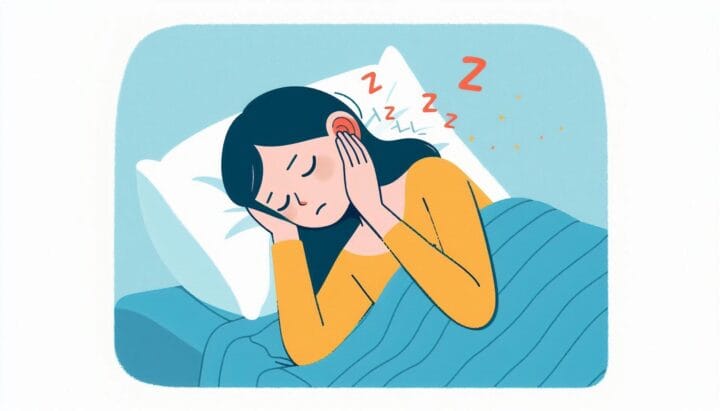Snoring Home Remedies: 15 Natural Ways to Quiet the Night
Table of Contents

Snoring Home Remedies: 15 Natural Ways to Quiet the Night
Snoring. It’s that nighttime nuisance that can drive partners crazy and leave you feeling less than refreshed come morning. But before you resign yourself to a lifetime of nocturnal noise, let’s talk about some home remedies that might just help you catch some peaceful Zs.
Why Snoring Happens
Before we jump into solutions, it’s helpful to understand what causes snoring. When you sleep, the muscles in your throat relax. This can narrow your airway, making it harder for air to flow smoothly. As air squeezes through, it causes the surrounding tissues to vibrate – and that’s what creates that familiar snoring sound.
Lifestyle Changes to Reduce Snoring
1. Sleep on Your Side
Gravity’s not your friend when you sleep on your back. Your tongue can fall back, partially blocking your airway. Rolling onto your side can help keep things clear.
2. Lose a Few Pounds
Extra weight, especially around your neck, can put pressure on your airways. Shedding even a few pounds might make a big difference.
3. Skip the Nightcap
That glass of wine before bed might seem relaxing, but alcohol can actually make snoring worse. It relaxes your throat muscles too much, increasing the likelihood of snoring.
4. Quit Smoking
Smoking irritates your throat and can lead to inflammation, which narrows your airways. Kicking the habit could help you breathe easier at night.
Bedtime Tricks for Quieter Nights
5. Elevate Your Head
Propping up your head with an extra pillow can help keep your airways more open. It’s like creating a gentle slope for better airflow.
6. Use a Humidifier
Dry air can irritate your nose and throat. A humidifier adds moisture to the air, potentially reducing snoring. Think of it as giving your airways a refreshing drink.
7. Try Nasal Strips
These little adhesive strips can lift the sides of your nose, opening up your nasal passages. It’s like creating a mini-highway for air to flow through.
Natural Remedies from the Kitchen
8. Sip Some Peppermint Tea
Peppermint has anti-inflammatory properties that might help reduce swelling in your throat. Plus, it’s a soothing way to end your day.
9. Gargle with Saltwater
A saltwater gargle before bed can help reduce swelling and clear out mucus. It’s like giving your throat a mini-spa treatment.
10. Snack on Anti-Inflammatory Foods
Foods rich in omega-3s, like fish or walnuts, can help reduce inflammation throughout your body, including your airways.
Exercise Your Way to Quieter Sleep
11. Throat Exercises
Believe it or not, exercising your throat muscles might help reduce snoring. Simple exercises like pronouncing vowel sounds can strengthen these muscles over time.
12. Practice Yoga
Certain yoga poses can help strengthen your throat muscles and improve your breathing. It’s like a workout for your airways.
Bedtime Preparations for Better Sleep
13. Clear Your Nasal Passages
Using a neti pot or saline spray before bed can help clear out your nasal passages. It’s like giving your nose a good spring cleaning.
14. Avoid Heavy Meals Before Bed
Eating a big meal right before bed can lead to acid reflux, which can worsen snoring. Try to eat your last meal at least three hours before bedtime.
15. Establish a Consistent Sleep Schedule
Going to bed and waking up at the same time every day can help regulate your sleep patterns, potentially reducing snoring.
When to Seek Professional Help
While these home remedies can be effective for many people, sometimes snoring can be a sign of a more serious condition, like sleep apnea. If your snoring is loud, persistent, or accompanied by gasping or choking sounds, it’s time to talk to a healthcare professional.
Conclusion
Snoring doesn’t have to be a lifelong sentence to noisy nights and groggy mornings. With these home remedies, you’ve got a toolkit of natural solutions to try. Remember, what works for one person might not work for another, so don’t get discouraged if the first few remedies don’t do the trick. Keep experimenting until you find what works for you.
Ready to take the first step towards quieter nights? Pick one or two of these remedies to try tonight. Your partner (and your own well-rested self) will thank you in the morning!
FAQs
- How long does it take to see results from snoring home remedies?
It varies depending on the remedy and individual. Some, like sleeping on your side, can work immediately. Others, like throat exercises, might take weeks to show full effects. - Can children use these snoring home remedies?
Many of these remedies are safe for children, but it’s always best to consult with a pediatrician first, especially if the snoring is severe or persistent. - Are there any foods that can help reduce snoring?
Some people find that eating anti-inflammatory foods like pineapple or garlic can help reduce snoring, though scientific evidence is limited. - Can allergies cause snoring, and how can I address this at home?
Yes, allergies can cause nasal congestion leading to snoring. Using air purifiers, keeping your bedroom clean, and using hypoallergenic bedding can help. - Is it normal to snore occasionally?
Occasional snoring is common and usually not a cause for concern. However, if it becomes frequent or disruptive, it’s worth addressing. - Can dehydration contribute to snoring?
Yes, being dehydrated can lead to thicker mucus in your throat, potentially increasing snoring. Staying well-hydrated throughout the day can help. - Are there any specific sleeping positions that can worsen snoring?
Sleeping on your back is often the worst position for snoring. Side sleeping or slightly elevating your head are generally better options.
Citations:
[1] https://www.sleepcycle.com/snoring/10-natural-snoring-remedies/
[2] https://www.buzzrx.com/blog/how-to-stop-snoring
[3] https://www.medicinenet.com/how_to_stop_snoring/article.htm
[4] https://www.beckerentandallergy.com/blog/ultimate-guide-stop-kids-snoring
[5] https://www.healthline.com/health/snoring-remedies
[6] https://www.webmd.com/sleep-disorders/features/easy-snoring-remedies
[7] https://www.medicalnewstoday.com/articles/321174
[8] https://www.beckerentandallergy.com/blog/fix-your-deviated-septum














Post Comment